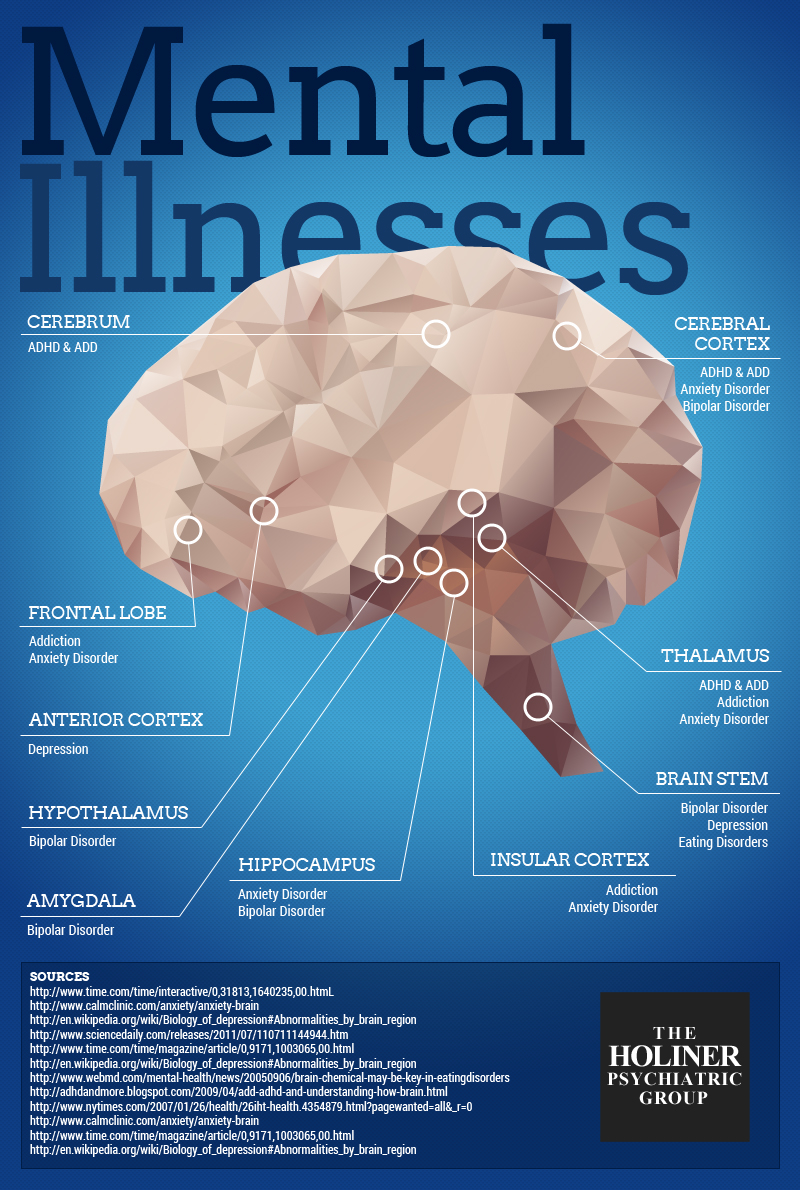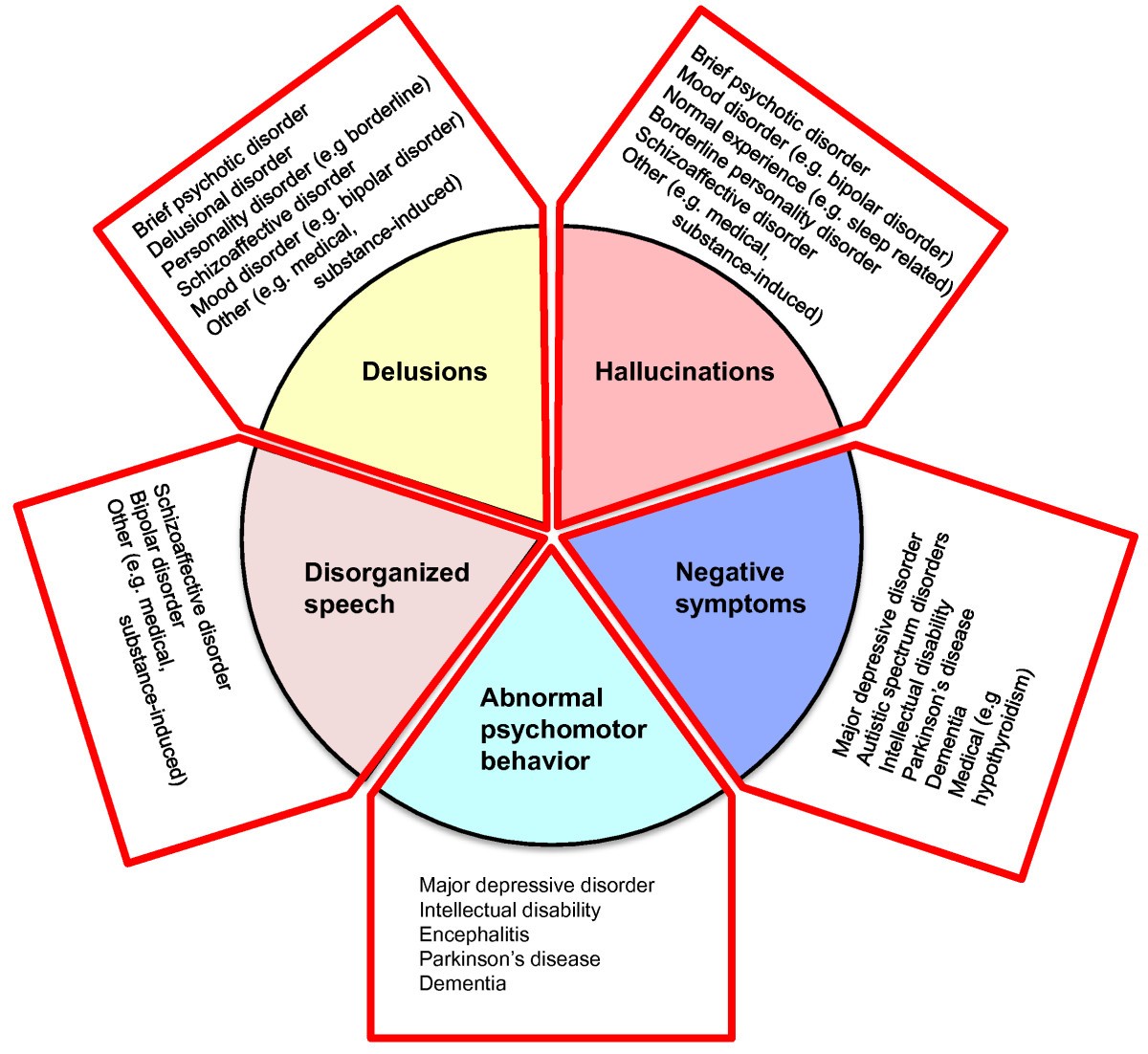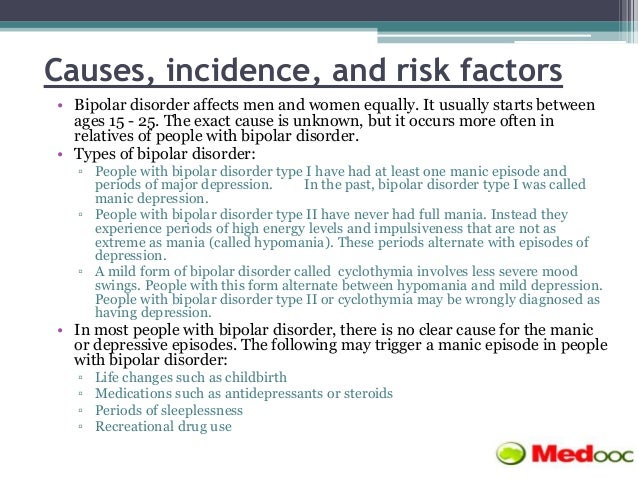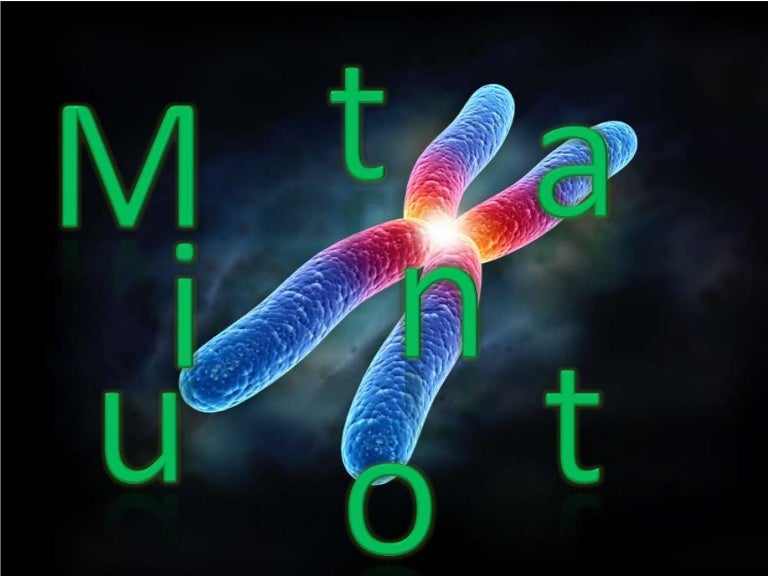Is bipolar disorder genetic
Home » » Is bipolar disorder geneticYour Is bipolar disorder genetic images are available in this site. Is bipolar disorder genetic are a topic that is being searched for and liked by netizens today. You can Download the Is bipolar disorder genetic files here. Find and Download all royalty-free images.
If you’re searching for is bipolar disorder genetic pictures information connected with to the is bipolar disorder genetic interest, you have visit the right blog. Our website always provides you with suggestions for seeing the highest quality video and image content, please kindly hunt and find more enlightening video content and images that fit your interests.
Is Bipolar Disorder Genetic. Although the exact cause of bipolar disorder is unknown, it has been scientifically proven that there is a genetic component, meaning that bipolar disorder can run in families. Instead, a number of genetic and environmental factors are thought to act as triggers. While bipolar disorder does have a hereditary component, it’s important to be aware of it, but not to be alarmed, as genetics do not guarantee that someone will develop the condition at any point in their life, and most of the time, people with immediate family members with bipolar disorder don’t end up getting it themselves. Bipolar genetics research is teaching us new information about this condition and the ways mental health is impacted by genetic material.
 Bipolar lecture From slideshare.net
Bipolar lecture From slideshare.net
But no single gene is responsible for bipolar disorder. Earlier studies examining the genetic cause of bipolar disorder focused on identifying common dna changes that could only explain a small percentage of the risk for bipolar disorder. Bipolar disorder is genetic, but research suggests that there is both a genetic component and environmental one that contribute to its development. Bipolar disorder (also known as manic depressive illness) is a complex genetic disorder in which the core feature is pathological disturbance in mood (affect) ranging from extreme elation, or mania, to severe depression usually accompanied by disturbances in. Your genes are passed down from your parents and ancestors, and they provide the blueprint for how your body and brain develop. At rose hill center , we understand that for most patients who.
Researchers have established that bipolar disorder has a genetic component.
Based on twin studies, the chances of bipolar disorder being. The family members of a person with bipolar disorder have an increased risk of developing it themselves. Bipolar disorder (bp) is a highly heritable disease, with heritability estimated between 60 and 85% by twin studies. Genetics is really complicated, and so is mental illness. Bipolar disorder is genetic, but research suggests that there is both a genetic component and environmental one that contribute to its development. Ad publish your review or original research paper with biomed research international.
 Source: minditright.com
Source: minditright.com
Ten years ago, bd was considered a distinct, highly heritable disorder for which genes of. That means that heredity isn’t the only cause of bipolar disorder. Earlier studies examining the genetic cause of bipolar disorder focused on identifying common dna changes that could only explain a small percentage of the risk for bipolar disorder. The family members of a person with bipolar disorder have an increased risk of developing it themselves. Hindawi�s academic journals cover a wide range of disciplines.
 Source: holinergroup.com
Source: holinergroup.com
Bipolar disorder (also known as manic depressive illness) is a complex genetic disorder in which the core feature is pathological disturbance in mood (affect) ranging from extreme elation, or mania, to severe depression usually accompanied by disturbances in. Bipolar disorder (also known as manic depressive illness) is a complex genetic disorder in which the core feature is pathological disturbance in mood (affect) ranging from extreme elation, or mania, to severe depression usually accompanied by disturbances in. Your genes are passed down from your parents and ancestors, and they provide the blueprint for how your body and brain develop. Bipolar disorder is genetic, but research suggests that there is both a genetic component and environmental one that contribute to its development. Genetics is really complicated, and so is mental illness.
 Source: holinergroup.com
Source: holinergroup.com
Most experts believe that there is a genetic component to bipolar disorder, but they do not fully understand the specifics. Bipolar disorder is a common, complex genetic disorder, but the mode of transmission remains to be discovered. Based on twin studies, the chances of bipolar disorder being. The genetics of bipolar disorder. There’s no single gene that determines for sure whether you’ll have bipolar.
 Source: bmcbiol.biomedcentral.com
Source: bmcbiol.biomedcentral.com
Bipolar disorder (also known as manic depressive illness) is a complex genetic disorder in which the core feature is pathological disturbance in mood (affect) ranging from extreme elation, or mania, to severe depression usually accompanied by disturbances in. Researchers have established that bipolar disorder has a genetic component. But no single gene is responsible for bipolar disorder. That means that heredity isn’t the only cause of bipolar disorder. Bipolar disorder impacts 60 million people worldwide, so research to help improve the quality of.
 Source: lpcashburn.com
Source: lpcashburn.com
Bipolar disorder (bd) is one of the most heritable mental illnesses, but the elucidation of its genetic basis has proven to be a very challenging endeavor. Bipolar genetics research is teaching us new information about this condition and the ways mental health is impacted by genetic material. Studies suggest that variations in many genes, each with a small effect, may combine to increase the risk of developing the condition. There’s no single gene that determines for sure whether you’ll have bipolar. Many researchers assume that common genomic variants carry some risk for manifesting the disease.
 Source: slideshare.net
Source: slideshare.net
Bipolar disorder (bp) is a highly heritable disease, with heritability estimated between 60 and 85% by twin studies. Bipolar disorder is genetic, but research suggests that there is both a genetic component and environmental one that contribute to its development. Very little is known for certain about the genetics of bipolar disorder. Bipolar disorder (bd) is one of the most heritable mental illnesses, but the elucidation of its genetic basis has proven to be a very challenging endeavor. Many researchers assume that common genomic variants carry some risk for manifesting the disease.
 Source: slideshare.net
Source: slideshare.net
A review of twin studies published in 2013 suggests that the disorder can run in families, and the heritability of an increased risk of bipolar disorder is estimated at over 80%. Earlier studies examining the genetic cause of bipolar disorder focused on identifying common dna changes that could only explain a small percentage of the risk for bipolar disorder. Bipolar disorder is a common, complex genetic disorder, but the mode of transmission remains to be discovered. However, most of these genetic variations have been identified in single studies, and subsequent research has not verified them. Genetics is one of many risk factors that can contribute to bipolar disorder.
 Source: slideshare.net
Source: slideshare.net
Genetic factors account for about 60 to 80 percent of the cause of bipolar disorder. Very little is known for certain about the genetics of bipolar disorder. That means that heredity isn’t the only cause of bipolar disorder. Bipolar disorder is genetic, but research suggests that there is both a genetic component and environmental one that contribute to its development. Researchers have established that bipolar disorder has a genetic component.
 Source: medicalnewstoday.com
Source: medicalnewstoday.com
There’s no single gene that determines for sure whether you’ll have bipolar. Is bipolar disorder a genetic disorder? However, most of these genetic variations have been identified in single studies, and subsequent research has not verified them. Ten years ago, bd was considered a distinct, highly heritable disorder for which genes of. Many researchers assume that common genomic variants carry some risk for manifesting the disease.
This site is an open community for users to do sharing their favorite wallpapers on the internet, all images or pictures in this website are for personal wallpaper use only, it is stricly prohibited to use this wallpaper for commercial purposes, if you are the author and find this image is shared without your permission, please kindly raise a DMCA report to Us.
If you find this site value, please support us by sharing this posts to your preference social media accounts like Facebook, Instagram and so on or you can also bookmark this blog page with the title is bipolar disorder genetic by using Ctrl + D for devices a laptop with a Windows operating system or Command + D for laptops with an Apple operating system. If you use a smartphone, you can also use the drawer menu of the browser you are using. Whether it’s a Windows, Mac, iOS or Android operating system, you will still be able to bookmark this website.